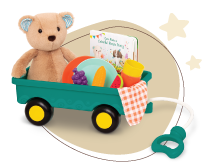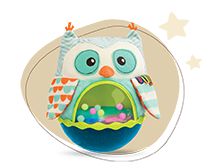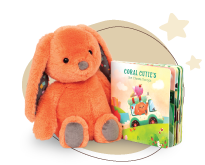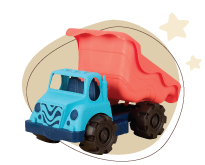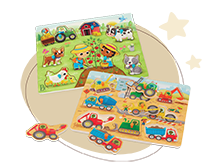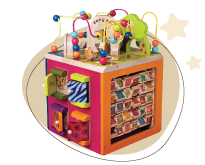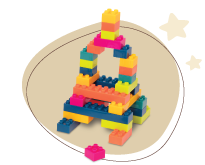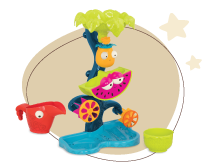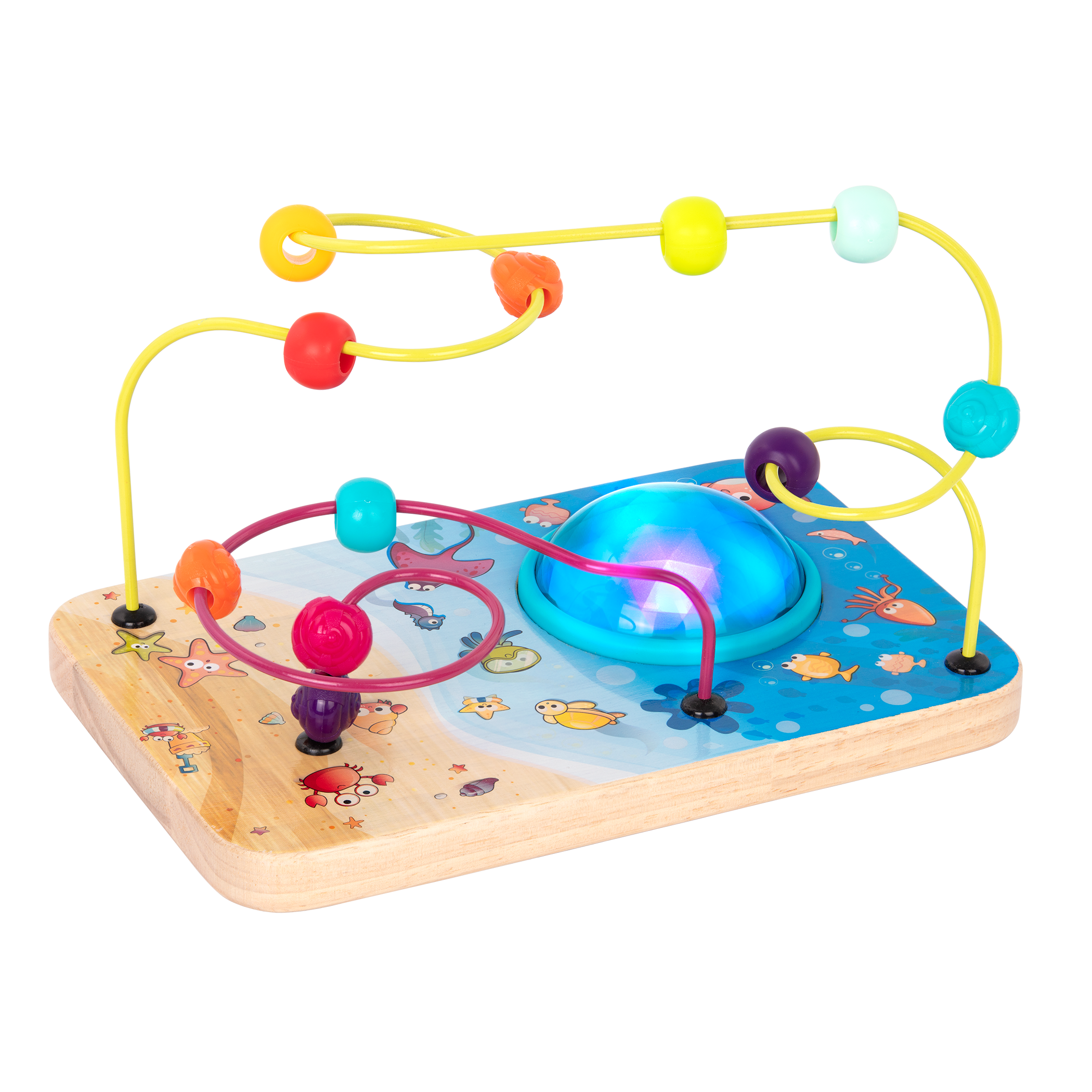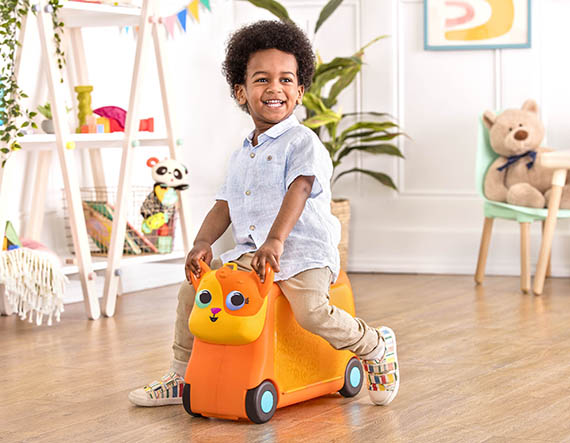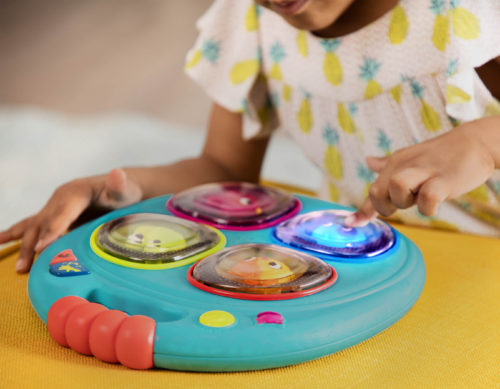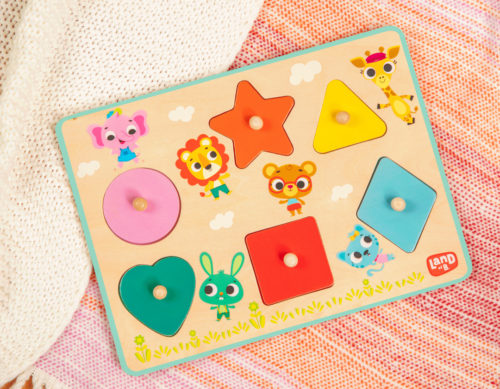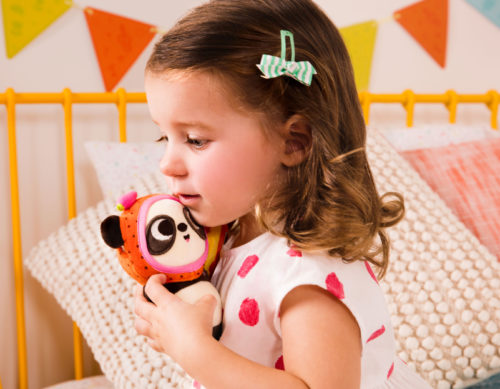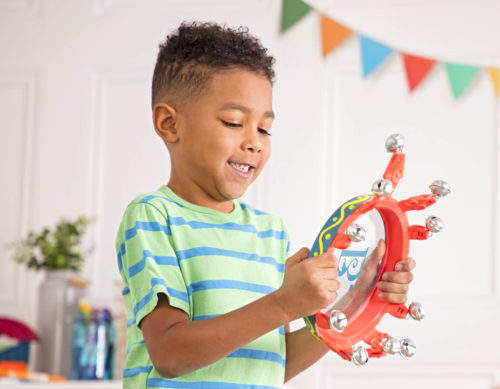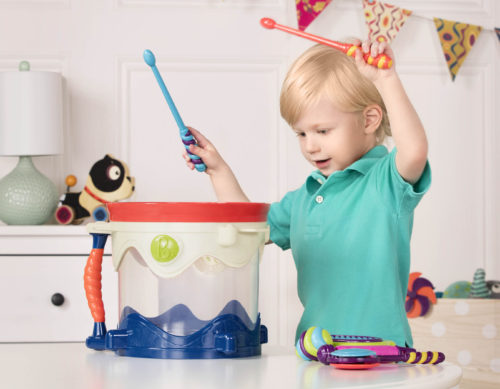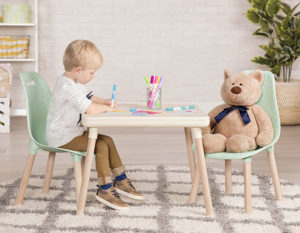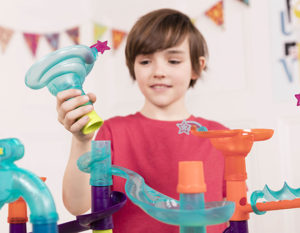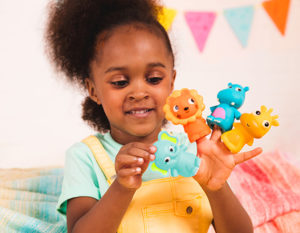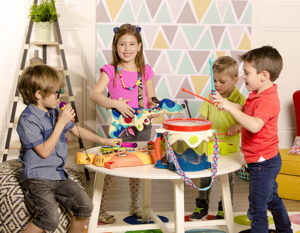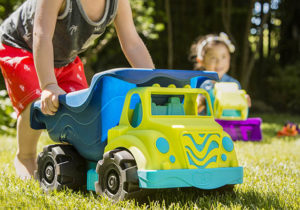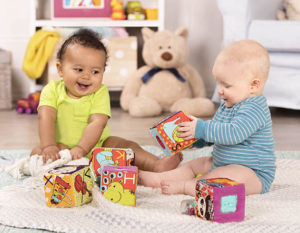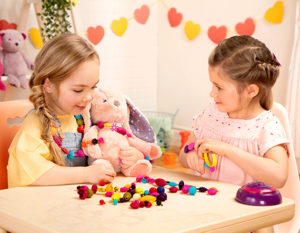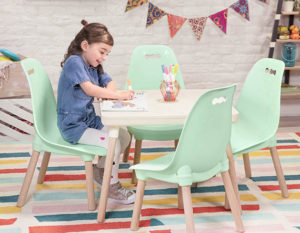With school in full swing, learning how to read, write, count, draw, or play music is at the educational forefront for mini students. But there are also quite a few mental skills that you can teach your kiddos about, which can in turn increase their productivity and boost their confidence when it comes to schoolwork and life in general!
Here are 5 mental skills that you can teach your little ones:
Concentration
Children often want to move, run, dance, explore, and discover everything around them. While being energetic and curious about the world is absolutely wonderful, it can make concentrating slightly difficult! But teaching your kiddos how to focus can be fun if you throw games into the mix. For example, you can make a friendly competition out of simply sitting still – just sit across from one another, and the first to move loses the game! (Giggles are guaranteed.) During playtime, you can also introduce toys that strengthen memory skills, such as our Catch-a-Sound pad that encourages toddlers to focus, remember, and repeat different sounds. And because little ones have so much energy, taking breaks or napping is key! Releasing some of that excitement before they need to tackle a task can help them concentrate and complete it successfully.
Problem-Solving
When your child comes across an issue, it can be tempting to swoop in and save the day. But learning how to problem-solve is essential for kids, as it will help them overcome both big and little hurdles in the future. If they feel as though they’ve hit a brick wall, you can let them know there are actually a few doors right around the corner. Coming up with solutions together can not only spark your child’s creative thinking, but it can show them that a problem can usually be fixed. For the wee ones, playing with a puzzle and finding the right spot for each piece is a simple way to teach problem-solving skills. Or if your older kiddo is always losing their craft materials, for example, then you can chat about different ways to organize their supplies and let them pick the solution that suits them best!
Regulating Emotions
“How are you feeling?” isn’t just something you hear from doctors – it can very much be a part of a parent’s vocabulary too! Talking about emotions – whether they fall on the smiley or frowny side – can help children identify them better and manage them appropriately. The first step is to discuss the range of emotions a person could have, beyond happy or sad. Just like adults, kids can feel excited, surprised, scared, bored, worried, embarrassed, and much more. Once you’ve helped them identify the given feeling, you can then pull pretend play out of the hat. If your little one is afraid of the famous closet monster, you can tell them that one of their toys comes with a special superpower that protects them. Or if they’re feeling frustrated about not being able to do a cartwheel, then you can encourage them to take a deep breath, shake it off, talk it out, and take the time to realize that it’ll pass.
Optimism
Feeling good about yourself and about what’s to come is also something that can be taught to children! A dash of optimism can go a long way when it comes to both problem-solving and managing emotions. If you hear your little learner sigh and say, “I’ll never understand multiplication,” then it’s important to let them know that practicing can help, and it can make them better at mathematics. So if they encounter roadblocks with other school subjects later on, the optimistic thought of “practice makes perfect” can guide them along the way. Taking positive action is great, but it’s also important to feel optimistic while staying realistic. Entering the land of make-believe during playtime is always welcome, but when it comes to real-life situations, being grounded is a good way to go!
Motivation
Making the bed, putting toys away, or doing homework are not usually tasks that kids get particularly excited about – which is where motivation comes in! Whether it’s to give your kiddos a lil’ encouragement with something they love doing or with common chores, you can help develop their motivational instinct. The first step is to focus on the process instead of the result. If counting to ten is the goal, then 1, 2, and 3 are just as important as getting to 10! What also drives motivation are positive reinforcements. A simple hug or a high five can give your child a sense of accomplishment that can motivate them to keep on going. And it’s also great for kids to know that mistakes aren’t always bad – in fact, they can learn from them and grow.
Learning and applying different mental skills is great for kiddos – and it’s good for the whole family too! Talk with each other, play together, and turn obstacles into teachable moments for everyone.
